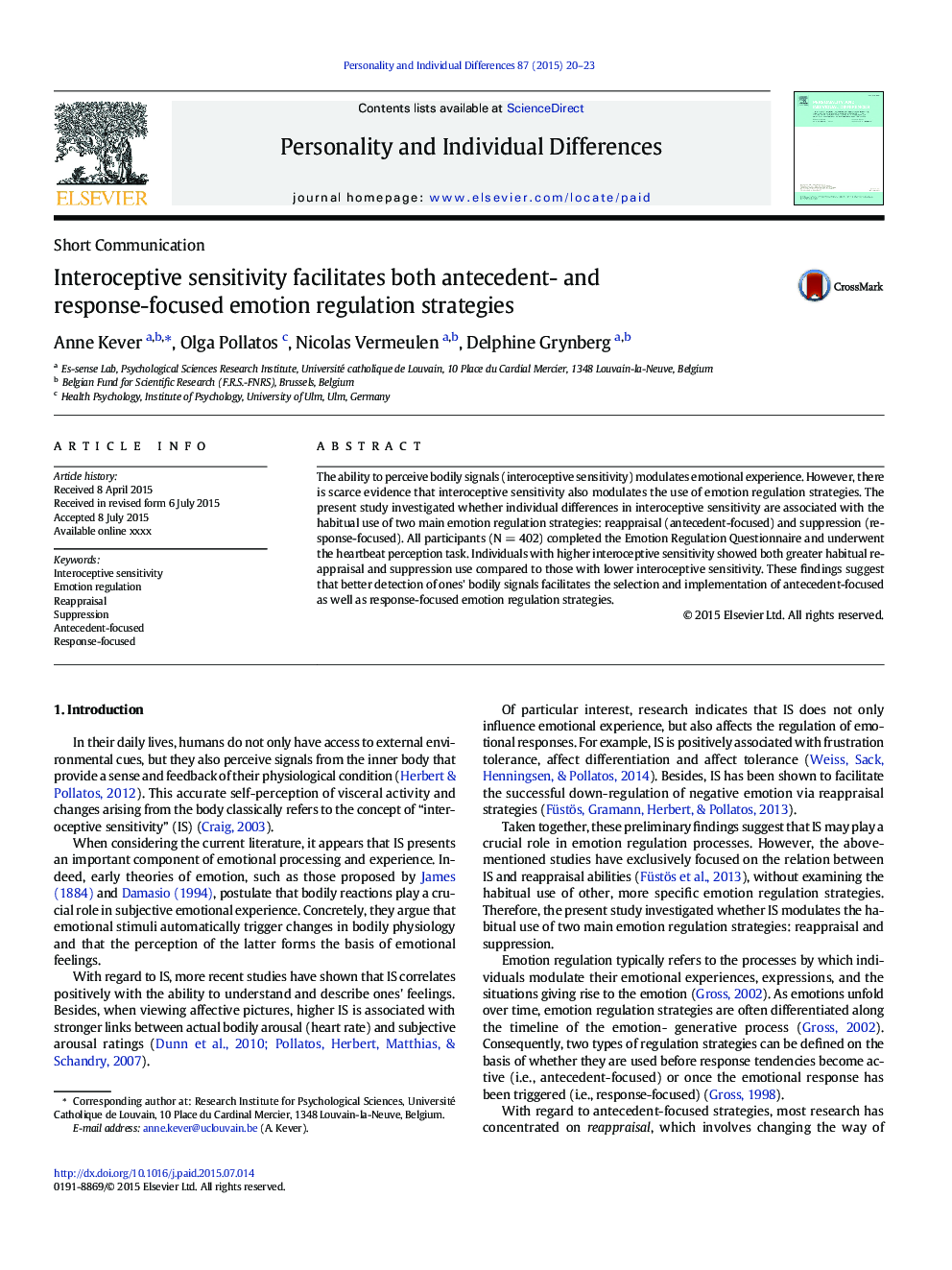| Article ID | Journal | Published Year | Pages | File Type |
|---|---|---|---|---|
| 7251096 | Personality and Individual Differences | 2015 | 4 Pages |
Abstract
The ability to perceive bodily signals (interoceptive sensitivity) modulates emotional experience. However, there is scarce evidence that interoceptive sensitivity also modulates the use of emotion regulation strategies. The present study investigated whether individual differences in interoceptive sensitivity are associated with the habitual use of two main emotion regulation strategies: reappraisal (antecedent-focused) and suppression (response-focused). All participants (NÂ =Â 402) completed the Emotion Regulation Questionnaire and underwent the heartbeat perception task. Individuals with higher interoceptive sensitivity showed both greater habitual reappraisal and suppression use compared to those with lower interoceptive sensitivity. These findings suggest that better detection of ones' bodily signals facilitates the selection and implementation of antecedent-focused as well as response-focused emotion regulation strategies.
Related Topics
Life Sciences
Neuroscience
Behavioral Neuroscience
Authors
Anne Kever, Olga Pollatos, Nicolas Vermeulen, Delphine Grynberg,
